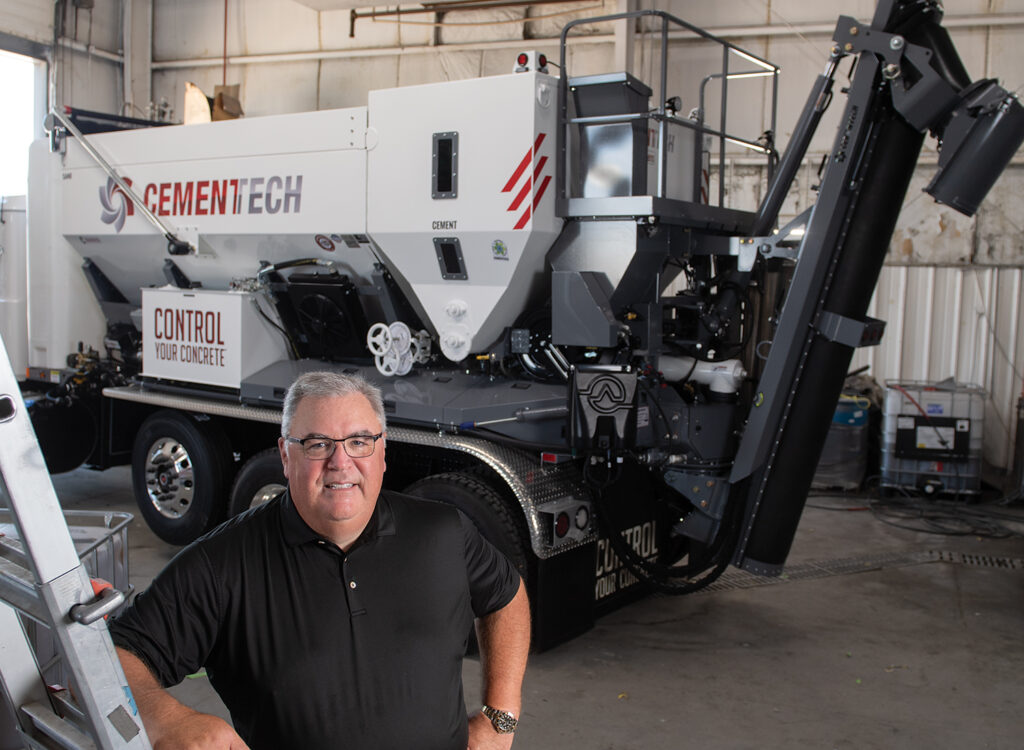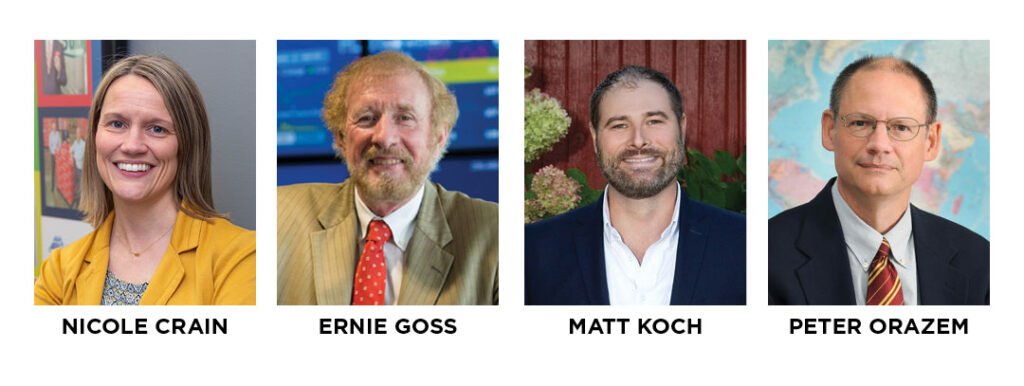A Closer Look: Matt Unger
CEO, Des Moines Area Religious Council

JOE GARDYASZ Feb 27, 2020 | 5:27 pm
6 min read time
1,339 wordsArts and Culture, Business Record Insider
Matt Unger was named CEO of the Des Moines Area Religious Council in July 2019 following the retirement of Sarai Schnucker Rice, who had led the food pantry nonprofit for 11 years. Before coming on board with DMARC, Unger was chief operating officer with the Food Bank of Iowa, where he worked for six years. Before entering the nonprofit sector, Unger spent more than a dozen years working on political campaigns and in state government management. He was chief of staff to Lt. Gov. Patty Judge during the Culver administration, and later worked with Judge in a private consulting firm. While he was with the Food Bank of Iowa, Unger helped the organization to distribute record amounts of food and implemented three new programs. Originally from Wisconsin, Unger moved to Des Moines to attend Drake University and has called Des Moines home for more than 20 years. He and his wife, Anita, live in Des Moines’ Beaverdale neighborhood. DMARC works with more than 125 member congregations from four faith communities in operating the DMARC Food Pantry Network, which distributes from 14 community locations and operates three mobile food pantry vehicles.
Did you get any parting words of wisdom from your predecessor, Sarai Rice?
She and I had known each for a while; coming from the Food Bank of Iowa, we had a pretty good relationship. Probably the nicest thing that she did for me was that we had an overlap period where we were both here for about two weeks. She was able to hand off a lot of relationships and make introductions with both of us in the room. And she did that at a time after she had just lost her husband, too. So I was particularly thankful that during a time like that that she took the time to make sure that I got off on the right foot. … Of all of the transitions I’ve made in my career, it was the most seamless and easiest.
Was there was a defining moment for you in deciding to shift your career from government to nonprofit work?
After I left state government in January 2011, former Lt. Gov. Patty Judge and myself started a [consulting] firm together. And at the time that we got out of government, it was really starting to move to this idea of winning for your team or tribe versus service. The reason I had gotten involved in politics to begin with was the service aspect of it and trying to do good things for the community. But it was very evident to me that that was no longer what was driving politics — and to be able to make those kinds of tangible differences in people’s lives could be much more effective in the nonprofit sector.
How did you connect with the Food Bank of Iowa?
Dave Miller was our homeland security and emergency services administrator; his wife, Carrie Miller, was running the Food Bank [of Iowa] at that time as executive director. There were some issues the food bank was trying to figure out; he said, “You should go talk to her about them.” So he put us together. … I said this would be the last consulting thing that I’m going to do. Halfway through that conversation, it turned into, “Well, why don’t you just come work here?” So that turned into a six-year stint at the Food Bank.
How do you see DMARC’s health as an organization and its outlook?
The biggest thing is that we’re experiencing increases [in demand] far above what we were expecting. So in our current budget year, we budgeted for about a 5 to 6% increase, and we’re actually much closer to 10% month-over-month compared to last year. There are a couple of things going on there. One, we’re getting better at providing access. So people that were getting missed before are now able to get food assistance, which is fantastic.
As we talk about the economy getting better, when we look at our data, we’re just not seeing it at the level of folks we’re assisting. This is one reason why I’m trying to bring organizations together that are working on some spoke of the poverty wheel, so we can try to get at these root causes. … How do we get into those deeper problems, [to address] housing costs and how do we get to livable wages and how do we handle some of these child care costs? All of these costs have continued to increase and increase, and family incomes haven’t kept up with that.
We’re blessed to have as much support as we do in this community. I can’t say enough about this community stepping up to the plate to meet these needs. But we’re going to be coming back into them and asking them to continue stepping up.
What are some of the big-picture takeaways from your time with Food Bank of Iowa?
Looking at the emergency food system, I’ve kind of been on all sides of it. I’ve seen it from the government side, I’ve seen it from the food banking side, and now more at the pantry level here. So I’ve got a really good understanding of where some of the barriers are, and maybe even more than that, where some of the better opportunities for partnerships are. I learned a lot about distribution and logistics in my time at the food bank because that’s not an area I really worked in, except for thinking through how you organize a political campaign, which is a lot of logistics. So the lessons learned there, I think, will really help as we try to make things more efficient here and get our flow going strongly.
What sort of difference are the mobile food pantries making? Will that program be expanded?
The mobiles are really cool because we can look at our data and see where the gaps are. So to be able to hit those pantry deserts has been a really good thing. We’re up to 30 locations that we’re serving with two of our mobile units. Our third mobile unit is dedicated to a kids program that we call the Refuel Station; that’s been a partnership with the Boys and Girls Clubs. And I think we’re up to six or seven locations with those also. But the thing that’s a little bit different about our mobiles is they each run on the Pantry 2.0 model [in which people get a pre-assigned number of points to use, with healthier items requiring fewer points to encourage healthier choices]. Of the 14 permanent pantries, two also run under that model. … I would love to be able to do that model at all 14 of the pantries, but it’s cost-prohibitive.
What’s your leadership philosophy in leading this organization?
The big thing that I always try to remember is I try to be a good listener. This team here is an amazing team of folks that have been here a lot longer than I have. They know what they’re doing in a different way than I do, and it’s really important to me to not dictate what happens but that we do that in a collaborative way as a team.
What sort of hobbies do you enjoy?
I like to bike — we’re a biking family. And we have a dog, so getting out for walks and playing with the dog is a lot of fun. I’m also an avid watcher and follower of all Wisconsin sports. Most of the stuff I’ve brought into my office is Brewers-related bobbleheads and Packers flags. And we like to get out and do the things that come to the community — we go to the various festivals, plays and concerts that come to town. I am a very strong believer that if you don’t go and support these things, they will not continue to come here. I think they’re so good for the community and what makes this a great place to live.










